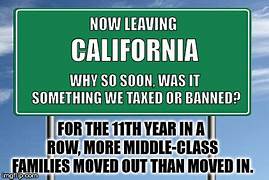So now we know. The white liberals that supported legalizing a gateway drug, marijuana, did it to make black folks rich!
“If it had been white politicians promising that legal weed was going to make Black people rich, Kika Keith thinks she never would have believed them.
But throughout 2017, it was Black politicians, Black activists, and Black executives telling standing-room–only crowds in the historically Black neighborhoods of Los Angeles to start a marijuana business and create “generational wealth.” Keith attended dozens of cannabis events that year, trying to immerse herself in the city’s pot industry and learn everything she could.
On a sticky summer afternoon in September, she made her way to a Watts community center to hear from one of the most powerful people in Southern California: Herb Wesson, L.A.’s first Black City Council president. Wesson took the stage in a powder-blue suit and smiled. Looking out at rows of Black faces glistening in the heat, he opened by acknowledging a shared history of hardship: “Most of us grew up in houses that didn’t have air conditioning, so we can handle this,” he said. “We can handle this.” The room swelled with laughter and applause.”
For generations drugs have harmed the black community—now it is worse.
Legalized Pot Was Supposed to Help Build Black Wealth in Los Angeles. It Failed.

Social equity programs were supposed to correct the disparities of the war on drugs as marijuana became legal. What went wrong?
New Republic, 4/4/22
If it had been white politicians promising that legal weed was going to make Black people rich, Kika Keith thinks she never would have believed them.
But throughout 2017, it was Black politicians, Black activists, and Black executives telling standing-room–only crowds in the historically Black neighborhoods of Los Angeles to start a marijuana business and create “generational wealth.” Keith attended dozens of cannabis events that year, trying to immerse herself in the city’s pot industry and learn everything she could.
On a sticky summer afternoon in September, she made her way to a Watts community center to hear from one of the most powerful people in Southern California: Herb Wesson, L.A.’s first Black City Council president. Wesson took the stage in a powder-blue suit and smiled. Looking out at rows of Black faces glistening in the heat, he opened by acknowledging a shared history of hardship: “Most of us grew up in houses that didn’t have air conditioning, so we can handle this,” he said. “We can handle this.” The room swelled with laughter and applause.
California was legalizing marijuana for anyone over 21, and Wesson declared that the Black and brown communities that had been disproportionately targeted for arrest when weed was illegal would now be given priority in running licensed cannabis businesses. “It’s very, very important that you participate,” he said, urging those present to seize this once-in-a-lifetime opportunity.
For Keith, Wesson seemed to represent a break from the city’s history of segregation and discrimination, offering a path to economic empowerment while standing before a mural of Black luminaries, including Sammy Davis Jr. and Kareem Abdul-Jabbar, at the center of the impoverished neighborhood where uprisings against police brutality erupted in 1965 and 1992.
“I’d never seen Black politicians speak directly to Black people and be like, ‘Black people, listen up!’” Keith told me years later. “‘This will be your only time in history! You have to get off your ass!’”
So she listened. At 45, she had three daughters and zero savings. As 2017 wore on, she and many other disadvantaged Angelenos became convinced that starting a pot company would bring them financial stability. “At every single one of these meetings, the people are like eating it up,” she remembered. “The people are like, ‘This is our saving grace! This is our redemptive moment!’”
Keith is the kind of L.A. person who uses “Blessings” as an email signoff but doesn’t go to church. She’s partial to gold bangles, knit beanies, and comfortable, oversize clothing in reds, oranges, and yellows. Her voice has a melodic softness to it, as though she speaks in lullabies, but this gentle exterior belies her tenacity. She has always been an entrepreneur. Several years before pursuing a cannabis business, when she and her girls spent a year in a homeless shelter, she used food stamps and pro bono legal assistance to start a company selling a raw green beverage, made with chlorophyll from alfalfa sprouts, at farmer’s markets around Los Angeles. It was her mother’s recipe, and as the company expanded, she refused to compromise on quality. She even sold a weed-infused version for a while, marveling at how much more she could charge for a healthy drink that got you high.
Soon the chlorophyll beverage was in Whole Foods across the West Coast, but Keith was still struggling to pay her bills. When she combed through her contract with the natural food distributor, she found fees and markdowns and lopsided provisions. She felt that, in her inexperience, she’d missed an opportunity to become a millionaire.
Cannabis was her chance to start over. Legal weed seemed like the perfect match between profit margins and plant medicine, between helping herself and helping other people heal. And this time, she wanted to involve her family. Her cousin had long grown her own weed. Just before California voted to legalize in November 2016, the two women said a prayer and made a pact over a single cannabis seed, vowing to learn the ins and outs of the industry, even if it got the cousin kicked out of her federally subsidized Section 8 housing. “We just made a plan that we were going to put all of our effort into this being a way that we could build a legacy for our whole entire family,” Keith said.
That September afternoon in Watts, Wesson positioned the future of legal pot in a similar fashion: a chance to close the wealth gap between Black and white families, to atone for the damage of the war on drugs, and maybe to provide some small recompense for the entire sordid history of racism in the United States. He described the plan as a product of Black unity, across politics and business, explaining that he was in “true partnership” with L.A.’s two other Black City Council members: “We. Work. Together. There is no competition between us.”
That September afternoon in Watts, Wesson positioned the future of legal pot as a chance to close the wealth gap between Black and white families. He said that the program was called social equity. For Kika Keith, it was reparations by another name.
This spoke to Keith. She knew the harm caused by marijuana prohibition; her stepfather was once sentenced to seven years for selling $10 worth of weed. “So much of that blood that has been shed, so many families that have been destroyed, we’ve lived it every day, and so to think that someone is going to say, ‘Here goes a ticket out, and I’m going to give you special provisions because you did experience that?’”
Wesson said that the program was called social equity. For Keith, it was reparations by another name.
Back in 2017, Los Angeles was among the first places in the United States to legalize weed with social equity in mind. Today, social equity dominates the conversation about who should be allowed to sell legal pot, with programs planned or up and running in Michigan, Massachusetts, New York, New Jersey, Illinois, Connecticut, Virginia, Arizona, and more.
Each place defines social equity differently, but the term broadly refers to three initiatives: clearing past cannabis convictions from criminal records; reinvesting tax revenue to help communities of color; and prioritizing cannabis businesses run by “social equity applicants”—a euphemism for Black and Latino entrepreneurs, or whomever else the government defines as deserving a leg up.
In the past five years, the number of states allowing recreational cannabis shot from eight to 18; another 19 allow medical use. As customers transition from dealers to dispensaries, the $24.5 billion legal cannabis industry is poised to nearly double by 2025. With much of the existing marijuana market dominated by deep-pocketed, multibillion-dollar companies like Curaleaf and Green Thumb Industries, social equity began to seem like a simple and necessary corrective, an innovative way of accomplishing justice. Jay-Z created a $10 million fund for Black- and minority-owned cannabis businesses. Senate Majority Leader Chuck Schumer regularly tweets support for federal legislation to “invest in communities hurt by the War on Drugs.” Cannabis CEOs pledge to be part of the solution, issuing press releases filled with buzzwords about inclusion, criminal justice reform, and a historic debt to marginalized communities.
But behind the corporate rhetoric and the political promises are sobering numbers and widespread frustration with how social equity has harmed some of the exact people the programs are meant to help. In the five years since Wesson outlined a plan in Los Angeles, 1,629 people became verified as social equity applicants, but only about 35 retailers have opened. Other places have similar rates. In Massachusetts, which announced an equity program in 2017, there were only 16 equity businesses out of 194 cannabis businesses as of November 2021.
So far, marijuana legalization has been less a revolution and more a grim continuation of a deeply American form of inequality, in which prosperity and social mobility are technically possible but utterly unlikely. Equity applicants are, by definition, at a disadvantage, competing in the open marketplace against well-capitalized, politically connected companies on everything from zoning to pricing. Black entrepreneurs describe being sold on the illusion of easy riches, only to find that it takes money to make money, leading to predatory loans and partnerships that leave them feeling exploited. Governments struggling to oversee the programs are at their best too slow—and at their worst too close with those already in power to enforce both the letter and the spirit of the law.
CLICK ON HEADLINE TO SEE COMPLETE STORY



